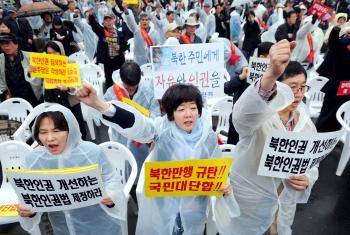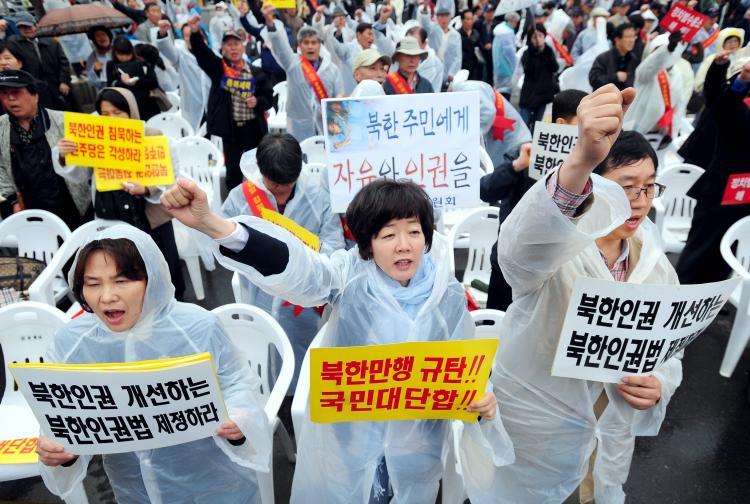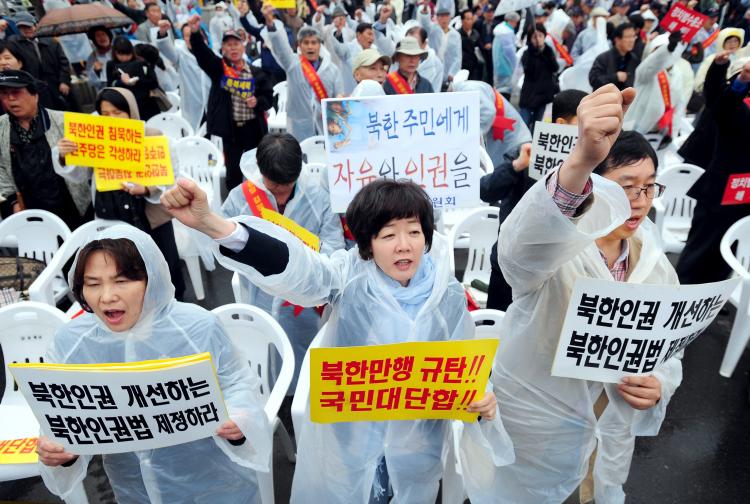A Gripping Glimpse Into Human Rights Atrocities in North Korea
Although movie cameras are not allowed inside North Korea to record scenes of starvation and mass suffering at the hands of the North Korean regime, South Korean movie director, Kim Tae-gyoon, has managed to take audiences directly into North Korea—through his landmark film, ‘Crossing.’

South Korean protestors shout slogans during a rally against North Korea's regime in Seoul on April 26. The placards read 'Freedom and human rights for North Korean people.' Ji-Hwan/AFP/Getty Images
|Updated:




